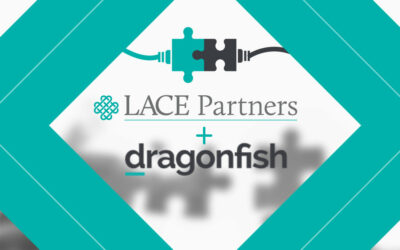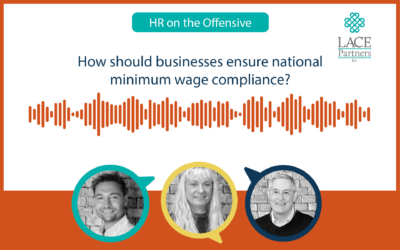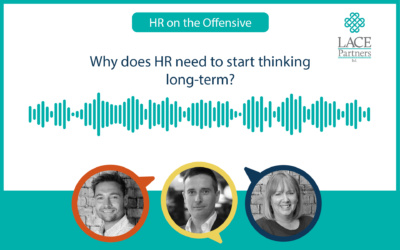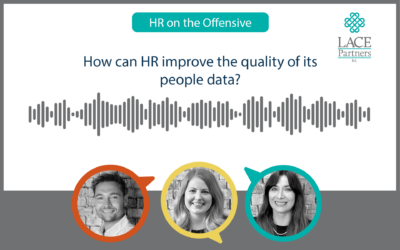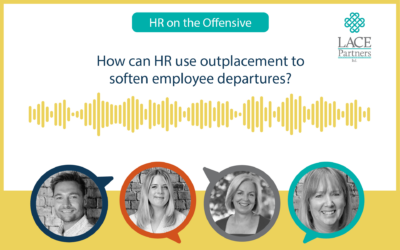Executive Director – HR Transformation, Emma Leonis sat down recently to (virtually) talk to Steve Bernard from Connectwell about leadership in 2021. Relationships in the workplace have never looked quite like this; how leaders can stay connected to their teams? What organisations are doing right and where leaders need to focus their attention to successfully navigate these challenging times?
From organisations you are working with, how have you seen leaders stay connected to their workforce?
There’s been some really good performance and good practice but I’ve also seen some organisations that are really struggling and gapping. The great leaders in organisations are doing something which they also do in normal times; sometimes called ‘organisational sensing’. They have their ‘feelers’ out and it is often not the formal feedback pieces that really count in this regard. It’s the little anecdotal conversations you might have usually had in the office, it’s checking in with people in an unscheduled way, or the additional five minutes you might add on to the end of a one-to-one with a direct report. All of the above can sometimes really make a difference in highlighting to a line manager where there might be a question – even if for now they don’t have an answer.
What have you seen in terms of leaders getting it right?
The organisations which have responded well in this environment are those which have managed to adapt and maintain those conversations and checkpoints. We are all restricted to the formats of these interactions, so it’s not just about the phone calls or video calls but it’s about the quality of the conversation and the quality of the listening. Very often the folks that are falling short are having more tactical conversations or asking more superficial or operational questions. It’s about making sure people don’t just listen in order to respond but listen in order to deepen their understanding.
Every interaction we have now feels like it needs to be scheduled and organised. How can we find the balance and ensure our conversations are natural and not forced?
There is a bit of an artform around not having a set questions, but being curious and remaining curious. You’ll never know everything there is to know about a person or how they will feel about a particular situation or topic. So it’s about allowing the conversation to flow and, dare I say it for us in the UK, about being okay with a little bit of silence.
If you reflect on the traits of what great leadership looked like a year ago, and what characteristics can you see emerging that we didn’t see before?
The nature of the leadership conversation is one that should be very adult, very open and very human. Where we left 2020 and entered 2021 is with everyone feeling very stressed and under a huge amount of pressure to right–size their organisations and keep the wheels going round. In that, without any malice intended sometimes managerial, leadership and line conversations have become a bit tighter, more tactical and expected.
For me, the new agenda for this year and hopefully going forward will be one which is not only more open but one where you can break some of the rules. What I mean by that, from a cross-functional point of view, is talking to people in different teams, picking up the phone without a particular agenda and leaving that open space for creative cross-fertilisation.
To what extent do you think we as leaders might be developing a parent/child relationship with our employees – and how do we overcome that?
A lot of people have fallen into the trap of the nurturing parent where they feel they need to protect their people and metaphorically put their arms around the organisation. While they do this for the right reasons it is a parental type of engagement. Equally, where people feel a lot of personal pressure and risk is associated, you can have a critical parent persona which says ‘don’t worry you don’t need to be involved I will make that decision on our behalf’ – but this can only go so far.
How you change that is a multi-faceted question. You can call out to your organisation to let them know it is everybody’s responsibility to ensure the quality of conversations. Leaders can encourage challenge and ask leftfield questions like ‘how did that change go in your opinion?’.
What do you think are going to be the biggest challenges for leaders trying to get the best from their people from a productivity and happiness perspective?
Wellbeing and mental health is going to be an incredibly prevalent topic over the next year. There is no replacement for the quality of insight that line managers can have. As well as advocating more formal surveying and asking more questions around mental and physical health, there is something around watching for the gaps. Colleagues also have a role to play in highlighting when someone is a bit quieter, a bit snappier or didn’t have their usual patience in a meeting.
Leaders also need to make sure that the methods they have in place for measuring productivity are appropriate. We are in such a fluid situation that I would challenge anyone to say that the measures we have are right or will continue to be right. There’s a continuous ‘watch and learn’ for everyone to make sure the ‘X’ and ‘Y’ are the right measurements as the context continues to shift.
For those able to work from home, some have reported feeling more productive but that also they don’t consider it sustainable. How flexible do you think leaders will be in relaxing on productivity to balance with the wellbeing agenda?
By this enforced new framework of working remotely, we have in some ways opened a Pandora’s box in terms of understanding the diversity of need. It is going to require some slow conversations to put back together a framework of how we treat our people and work together in a productive way. My hope for that is that we come up with some new scenarios we can experiment in the next few years. My worst-case scenario would be that we try and rush back to ‘normal’, because it will bring about so much difficulty for some people.
Culture is a natural thing which changes over time, which has been deeply impacted by remote working and the pandemic, so organisations will have a real challenge in patching together how to uphold the best learnings from the last year.
This blog is an adapted transcript from an episode of our HR on The Offensive Podcast. Subscribe now to stay up to date.

